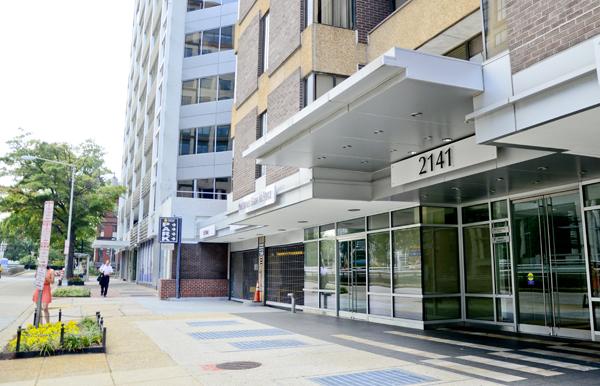
The University will spend $3 million to spread counseling and health services across two floors in the Marvin Center this year, an investment the Board of Trustees approved Friday.
GW will also add at least two counseling specialists, University spokesman Kurtis Hiatt said, though he did not say how much they would cost to hire. The multi-million dollar commitment comes after student leaders fought for months to move the services to a centralized location on campus, which University President Steven Knapp said he supported by fall.
At least one specialist will likely be dedicated to depression and suicide, after University Counseling Center director Silvio Weisner said he would ask for increased funding toward suicide prevention. Three students committed suicide on campus this semester, and Weisner has said that a larger budget could help the center pay for courses that teach faculty and staff how to catch symptoms of depression.
Board of Trustees chair Nelson Carbonell said the move was a priority for the University’s top governing body.
“We’re always going to be looking at how to deliver the best services for our students, and when it comes to health and wellness, it’s a really important thing to the Board,” he said.
All three students who died this year were found in their West Hall rooms on the Mount Vernon Campus. The University announced in April that it would move permanent counseling services to the 700-student campus, but the budget that the Board of Trustees approved Friday did not specify how much funding the new center would receive. Hiatt declined to provide further information.
Last year, the Board approved a budget increase of about $150,000, which allowed UCC to hire two specialists to help GW’s growing veteran and international student populations. The center has also added free group sessions and walk-in counseling in the last two years to meet a growing demand for support.
Dean of Student Affairs Peter Konwerski said in an email that the new Marvin Center office would be “a combined, central and visible space that improves students’ access to comprehensive physical and mental health care.”
Konwerski and Weisner declined to sit for interviews.

Outgoing Student Association president Julia Susuni, who secured the administrative decision to move the counseling center and Student Health Service to the heart of campus, thanked trustees for the financial commitment at the meeting Friday.
“I have spoken about this many times, and you have been thoughtful in the questions you’ve asked and in the feedback you’ve given me and my team, [along with] the overall feelings and remarks about providing adequate and visible health resources,” Susuni said.
Though the University has hired four clinical specialists over the past two years, it still boasts fewer clinicians per student than counseling centers at peer schools. GW will now have 20 total, compared to 46 at New York University and 31 at both University of Southern California and Northwestern University.
The additional staff will help alleviate rising demand for appointments, which have increased about 25 percent annually over the last three years. Walk-in requests also tripled over the last year.
In 2004, the University overhauled its counseling program after three GW students committed suicide within four months. Two dozen administrators completed a campus-wide investigation then, releasing a 55-page report on the state of GW’s mental health system and calling for increased funding, staffing and hours.
Farrah Hasnain, president of To Write Love on Her Arms, a mental awareness advocacy group, said she’d like to see the University hire a suicide specialist in light of this past spring. Hasnain said they should also consider reaching out to groups that traditionally aren’t reached by counselors, like people of color, international students, first-generation students, and low-income students.
“People of foreign cultures are constantly underrepresented in the profession, and the stigma behind mental health is fueled by that aspect. Many minority and low-income students are also less exposed to what mental healthcare is actually like because they were never able to pay for the services in the first place,” she said.
Incoming SA president Nick Gumas lauded the move of UCC and SHS during his five minutes in front of the University’s top leaders, saying that easier access would remind students of the resources available to them.
“Whether it’s the usual angst or depression, struggling with sexuality, body image issues, [this move] will allow us to build community around our University,” Gumas said.
Gumas also told trustees that establishing a peer-counseling program would be his top priority as president.
“Not every student will go through college and feel like they need a counselor, but many will need to speak to someone in a confidential environment,” Gumas said.







